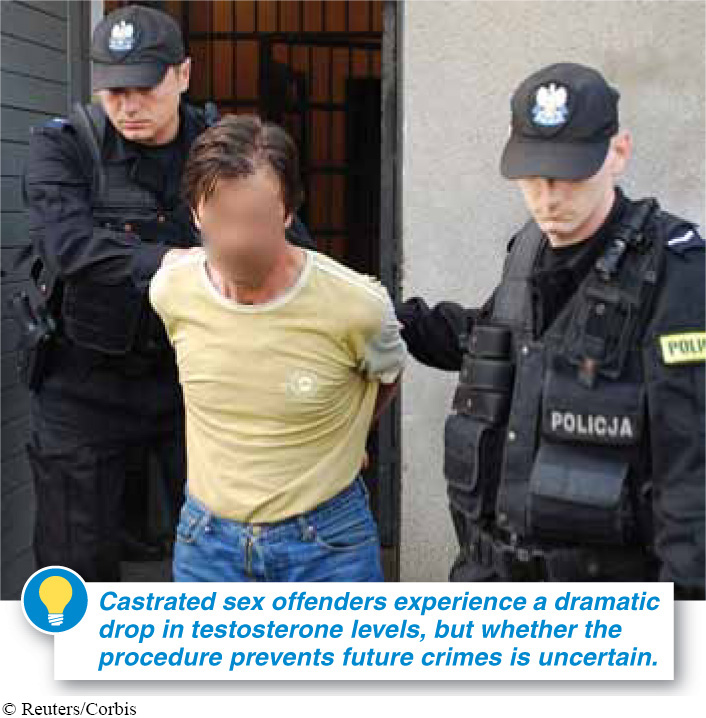24.8: Hormones can affect behavior.

It can be hard to imagine how a little more or a little less of a chemical could influence an animal’s behavior, but experimental research on hormones and behavior has documented literally thousands of such effects. The scholarly journal Hormones and Behavior, for example, in its 67th volume as of 2015, publishes five issues a year, each containing 25 or more articles describing laboratory and field studies on hormones and their influences on the development and expression of behaviors (FIGURE 24-20). In these studies, researchers take a variety of experimental approaches. Just two of these are described here.
Genetic manipulation of hormone levels. Researchers bred some lab mice that were unable to make the enzyme aromatase, which is essential to the production of estrogen. The mice with this deficiency had two striking behavioral differences from typical mice: they ran excessively on their exercise wheels and, when sprayed lightly with water, spent significantly longer grooming themselves. Both of these behaviors are indicators of obsessive-
Physiological supplementation of hormone levels. Researchers implanted testosterone capsules in male juncos, a type of songbird. These males produced a song that was more attractive to females, and they produced more offspring than control-
The dramatic and close link between hormones and behavior has caused people to debate whether sex offenders should be castrated to modify their behavior (FIGURE 24-21). Whether or not castration—
Q
Question 24.5
Is castrationan an effective and humane treatment for sex offenders?

988
Opponents of the castration of sex offenders argue that the evidence cannot be trusted, because it relies partly on self-
TAKE-HOME MESSAGE 24.8
Many laboratory and field studies have demonstrated the influence of hormones on the development and expression of behaviors.
What effects did testosterone supplementation have on songbirds in the experiment described in the text?